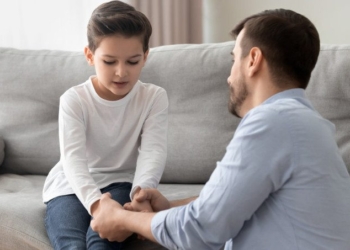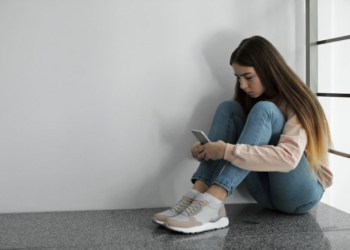
Separation anxiety is a regular occurrence for toddlers. Some sources have indicated that separation anxiety is at its highest level around the three-year-old mark. However, the fear has been known to start from as early as six months old, lasting up until schooling years.
If your child is showing symptoms of separation anxiety, you can try the tips below to make it easier for them and yourself.
Keep the Surrounding Familiar
Where possible, stick to the same nanny or babysitter to take care of your toddler at home while you are away. You can start hiring this nanny from before your baby reaches six months old so that your toddler will get familiar with them.
If you cannot keep your toddler at home, provide your baby with some familiar creature comforts such as his or her regular baby capsule. An everyday object in an unfamiliar place can help to ease some of your toddler’s anxiety and stress.
Play Peek-a-Boo with Your Toddler
Your infant has no concept of object permanence before they reach the age of six months old. This is why, when you play peek-a-boo with young infants, they seem to marvel at how you can disappear and reappear so suddenly!
Slowly, start to play peek-a-boo from behind furniture, rooms and so on. This activity trains your child to anticipate your returning. Once they start understanding object permanence, they will realize that you have left and will soon return.
Inform about Your Departure
Toddlers do not have a firm concept of time. Nevertheless, it would be helpful for you to tell your child when you’re leaving and when you’ll be back, assuming that they will understand. Try to do this while keeping a relaxed and happy face so that your child will feel safe and secure.
Letting your child know about your leaving is better than sneaking out while your child is not paying attention. When your child notices that you are suddenly gone, they may feel confused or upset. It would also be harder to comfort them the next time you leave them!
Provide Positive Reinforcement to Your Toddler
While at home, you can tell your child stories about separation anxiety involving animals and creatures. Stories like this can make your children feel like they are not alone in feeling the way they do. A child being able to relate to another character will always provide a sense of comfort.
Additionally, you can compliment your child when they are well-behaved when you are away. Let them know how brave they are. You can also give them plenty of positive affirmations to help them learn about the behaviour they should display whenever you’re not around.
Start with Short Absences
Instead of being away for the entire day the first time you are leaving your child, try limiting your time out to just an hour. Make the farewell short and sweet, and don’t come back to check on your child in that timeframe.
Interact with your child for a while before you leave them in your babysitter’s care. After a few practices, your child will get used to your being away. You can then extend your time away from your child a little longer each time.
Image source: Pixabay License CCO














